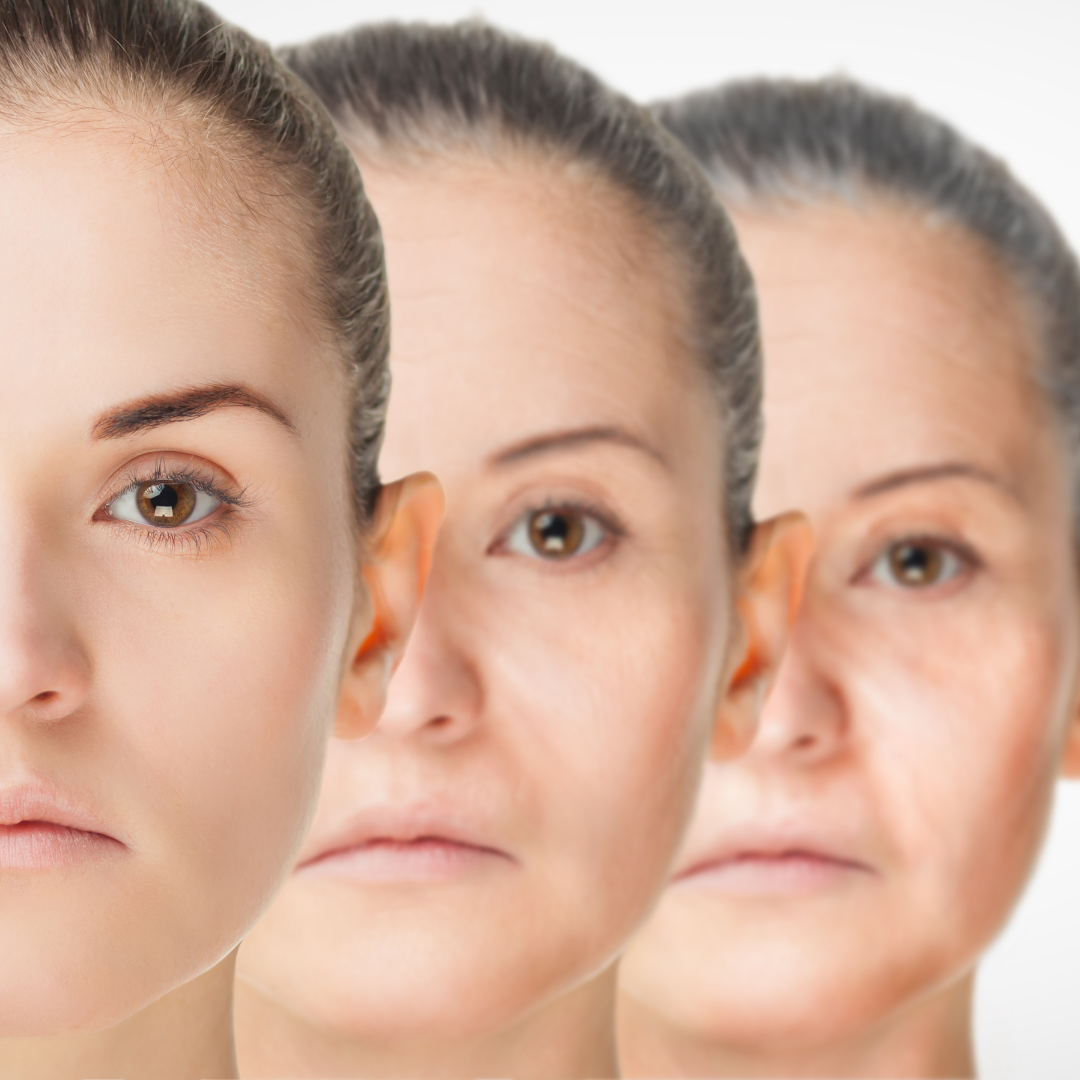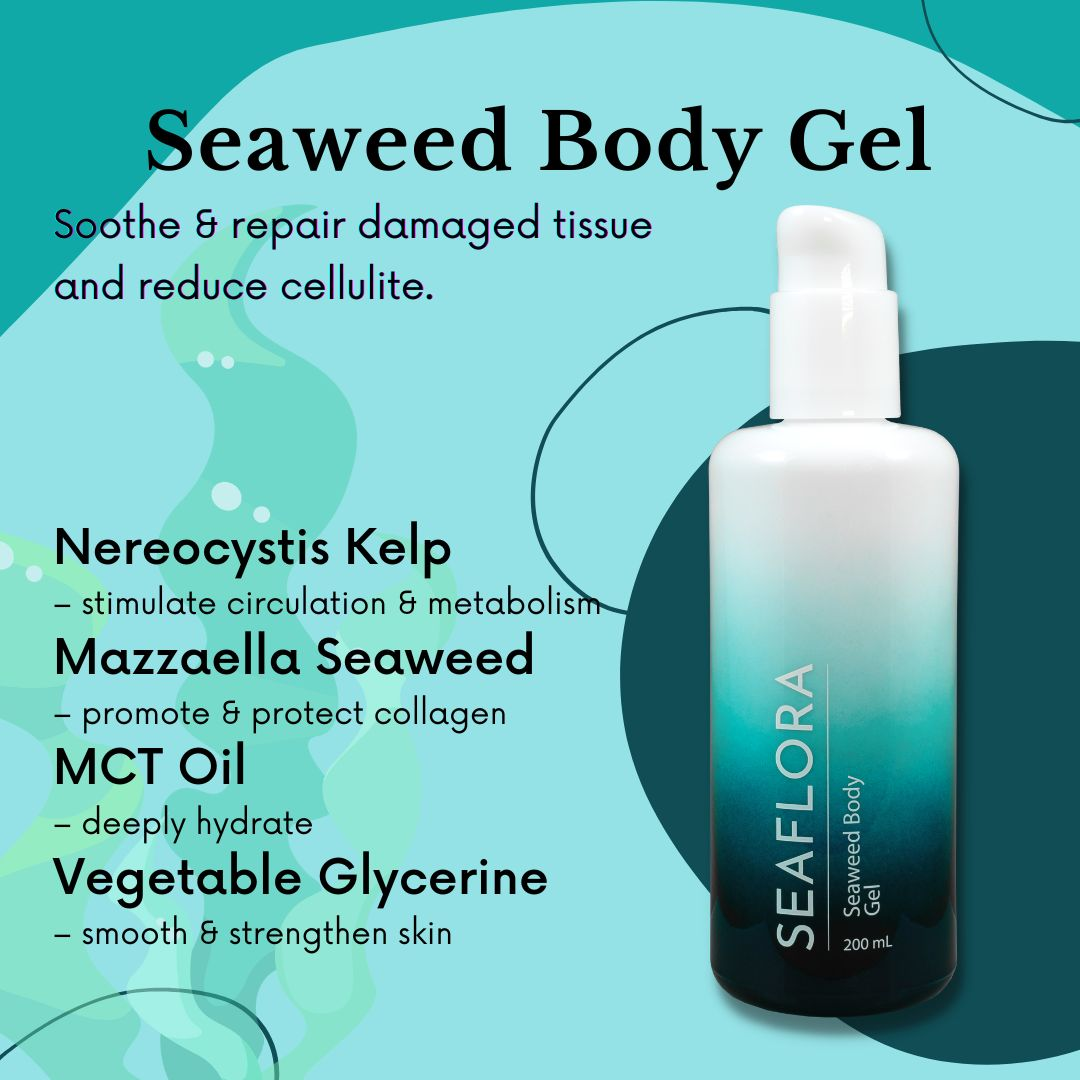Silent Saboteurs: The Truth About Mineral Deficiencies
Mineral deficiencies can happen for a myriad of reasons. Nutrition is an essential component of overall health and well-being. It is a science that studies how nutrients in food interact with the body, and how these interactions impact our health. Nutrients are vital for the normal growth of and maintenance of the body, and they provide the energy needed to perform daily activities. In this article, we will discuss the health effects of nutritional deficiency in the human body, most common nutrient deficiencies, mineral balance, the importance of proper nutrition, and the most nutritionally dense foods available on earth!
Part 1: The Effects of Nutrient and Mineral Deficiencies
Nutritional deficiency occurs when the body does not get enough of the necessary nutrients from the food we eat. These serious nutrient and mineral deficiencies can lead to a variety of health problems. Here are some of the most common health effects of nutritional deficiency:
Neural Tube Defects from Mineral Deficiencies
Neural tube defects (NTDs) are a group of birth defects that occur when the neural tube, a structure that forms early in fetal development and eventually develops into the baby’s brain and spinal cord, fails to close properly. The most common NTDs are spina bifida, anencephaly, and encephalocele.
Spina bifida is a condition in which the spinal column does not close completely, resulting in damage to the spinal cord and nerves. Anencephaly is a severe defect in which the brain and skull do not form properly, and the baby is born without parts of the brain and skull. Encephalocele is a rare defect in which a portion of the brain protrudes through an opening in the skull.
NTDs can have serious consequences for a child’s health and development, including physical disabilities, intellectual and developmental delays, and in some cases, death. The causes of NTDs are not fully understood, but they are believed to be a combination of genetic and environmental factors.
Folic acid, a B vitamin, has been shown to reduce the risk of NTDs. Pregnant women are advised to take folic acid supplementation to help prevent NTDs. It seems a better idea might be grass fed beef organs and kelp being advised to become a regular part of the diet.
Cognitive Dysfunction from Mineral Deficiencies
Micronutrient deficiencies can cause cognitive dysfunction, which can affect memory, concentration, and overall brain function. For example, a deficiency in vitamin B12 can cause memory loss and confusion.
Fatigue and Weak Immune System from Mineral Deficiencies
Nutrient deficiency can cause fatigue, making it difficult to perform daily activities. Nutrient deficiency, in iodine, folate deficiency, vitamin D, and vitamin C deficiency can weaken the immune system, making the body more susceptible to infections and illnesses. Every cell in the body utilizes Vitamin C, so we need it in large amounts on a daily basis. With the constant turnover of the same soil on commercial farms, the amount of Vitamin C found in an orange 80 years ago compared to today is drastically less.
Anemia from Mineral Deficiencies
A lack of iron can lead to anemia, a condition in which the body does not have enough red blood cells to carry oxygen to the tissues. Seaweed is a superfood that in small amounts can offer the body the appropriate amounts of iron, Vitamin C, iodine and all the other nutrients and trace elements the body needs for optimal health.
Stunted Growth from Mineral Deficiencies
Children who do not receive adequate nutrition may experience stunted growth and development. This can have long-term effects on their health and well-being.
Delayed Healing due to Mineral Deficiencies
Severe iodine deficiency, can slow down the thyroid. Other micronutrient deficiencies can slow down the healing process, making it difficult for the body to recover from injuries severe infections and illnesses. The use of seaweed to treat wounds dates back to Roman times. Derived from seaweed and other brown algae, alginates are still used today in wound dressings for skin grafts, burns, and other difficult wounds. and forms a gel that moistens the tissue to speed healing and reduce pain and trauma during dressing changes.
Poor Digestive Health
A lack insufficient intake of fiber and other nutrients in vegan diets can cause poor digestive health, leading to constipation, diarrhea, and other digestive problems. Seaweeds have a high proportion of soluble fiber, with an average content of 24.5 g/100 g and 21.8 g/100 g for insoluble fiber.
Skin Problems caused by Mineral Deficiencies
Skin problems, such as dryness, acne, and eczema and all caused from deficiencies or imbalances that can be corrected. Signs of aging are signs the body is lacking what it needs to be optimally healthy. Working on your gut health = working on your skin health.
Mood Disorders from Mineral Deficiencies
A lack of certain nutrients, such as omega-3 fatty and essential amino acids in, can lead to mood disorders, such as depression and anxiety.
Most Common Mineral Deficiencies
Serious health consequences can be prevented by consuming a balanced diet that includes a variety of nutrient-rich foods. Grass-fed, grass-finished beef, bone broth, wild mushrooms, fish oil micro and whole fish oil macro algae, and shilajit are some of the most nutritionally dense foods available on earth. However, it is important to remember that there are many other important nutrients that the body needs to function properly.
Iron Deficiency
Iron is essential for the production of hemoglobin, which carries oxygen in the blood. Iron deficiency can lead to anemia, fatigue, and weakness.
Vitamin D Deficiency
Vitamin of vitamin D is important for bone health, cardiovascular disease, immune function, and overall health. Vitamin D deficiency can lead to weak bones, increased risk of chronic diseases, and weakened immune function.
Vitamin B12 Deficiency
Vitamin B12 is important for muscle and nerve function, DNA synthesis, and red blood cell production. Vitamin B12 deficiency can lead to anemia, fatigue, and nerve damage. Seaweeds are full of B Vitamins, in particular dried green and red seaweed contain substantial amounts of vitamin B12.
Calcium Deficiency
Calcium is essential for bone health, nerve function, and muscle function. Calcium deficiency can lead to weak bones, bone pain, muscle cramps, bone pain and an increased risk of osteoporosis. The most bioavailable form of calcium is found in algae. There is a company in Vancouver called AlgaeCal who has proven repeatedly that red algae offers the most bioavailable form of calcium.
Copper deficiency and signs of aging
Copper is an essential mineral that plays a vital role in many bodily functions. It is involved in the production of red blood cells, the of red blood cells, formation of collagen, and the absorption of iron. Copper is also an antioxidant that helps protect red blood cells from damage caused by free radicals.
One of the most significant public health effects of copper deficiency is its impact on signs of aging. Studies have shown that copper deficiency can lead to premature aging of the skin, including wrinkles, sagging, and age spots. This is because copper is involved in the production of collagen, which is essential for maintaining the elasticity and firmness of the skin.
Copper deficiency and brain aneurysm
Copper deficiency has also been linked to an increased risk of brain aneurysm. An aneurysm is a bulge in a blood vessel caused by a weakened or damaged artery wall. If an aneurysm ruptures, it can up blood pressure and cause a stroke, brain damage, or even death. Studies have shown that copper deficiency can weaken the walls of blood vessels, making them more susceptible to aneurysm formation.
Use this food guide to find a few ways to increase your copper intake. Balance and harmony are important, and shouldn’t be overlooked. For example, if you are supplementing zinc, many doctors recommend to supplement copper at the same time. Zinc reduces the amount of copper that the body absorbs, and high doses of zinc can cause copper deficiency.
Part 2: The Importance of Proper Nutrition
Proper nutrition is essential for good health. It provides the body with the necessary nutrients to maintain bodily functions and prevent disease. According to the World Health Organization (WHO), about 2 billion people worldwide suffer from nutrient deficiencies, including deficiencies in vitamin D, vitamin A, iron, iodine, and zinc. In North America, although malnutrition is less common than in other parts of the world, a significant number of people still suffer from nutrient deficiencies especially Vitamin D.
In the United States specifically, it is estimated that up to 40% of the population may have deficiencies in vitamin D, which is important for bone health and immune system function. However, the exact percentage of the population with deficiencies can vary depending on the specific nutrient in question and other factors such as age, gender, and diet.
Some groups, such as pregnant women, children, and the elderly, may be at higher risk for common nutrient deficiencies. Kelp is the only rich source of vitamin D from a vegetable source.
Seaweed as A Mineral Supplement
Seaweed is a nutrient-dense superfood that can address mineral deficiencies while offering multiple health benefits. Rich in iodine, seaweed helps balance thyroid hormones and supports metabolism, which is particularly beneficial for those with sluggish thyroid function often associated with Candida overgrowth. Its high mineral content acts as a natural supplement, providing essential nutrients that may be lacking in modern diets. Seaweed’s detoxifying properties help flush toxic pollutants and heavy metals from the body, supporting the body’s natural cleansing processes. Additionally, certain seaweeds contain compounds with antifungal properties that can inhibit the growth of Candida albicans, as demonstrated in studies using Gracilaria verrucosa extract[1]. By incorporating seaweed into your diet, you can potentially combat mineral deficiencies, aid in heavy metal detoxification, support the fight against mold and Candida overgrowth, and supplement your body with a wide array of beneficial minerals and nutrients.
Here are some of the benefits of proper nutrition:
Increased Energy
A balanced diet that includes all the necessary nutrients provides the body with the energy needed to perform daily activities.
Improved Immune Function
Proper nutrition can strengthen the immune system, making it easier for the body to fight off infections and illnesses.
Improved Digestive Health
A diet that includes fiber and other nutrients can improve digestive health, preventing constipation, diarrhea, and other digestive problems.
Improved Brain Function
A diet that includes essential fatty acids, vitamins, and minerals can improve brain function, memory, and concentration.
Improved Heart Health
A diet that is low in saturated fat and high in fruits, vegetables, and whole grains can improve heart health, reducing the various risk factors of heart disease.
Reduced Risk of Chronic Diseases
Proper nutrition can reduce the risk of chronic diseases, metabolic disorders such as diabetes, cancer, and heart disease.
The Most Nutritionally Dense Foods on Earth
Nutrient-dense foods are those that provide a high level of nutrients for the amount of calories they contain. Here are some of the most nutritionally dense foods on earth:
Grass-fed Grass-finished Beef
Grass-fed, grass-finished beef is an excellent source of protein, vitamins, and minerals. It is also a rich source of omega-3 fatty acids, which can reduce inflammation and improve heart health. This type of beef is raised on a diet of grass, which is a more natural and nutritious diet for cattle than grain. Grass-fed, grass-finished beef also contains higher levels of conjugated linoleic acid (CLA), which has been linked to a reduced risk of cancer.
Wild Mushrooms
Wild mushrooms are a great source of several essential nutrients, including vitamin D, potassium, copper, selenium, and B vitamins. They are also rich in antioxidants, including ergothioneine, which is known to have anti-inflammatory and anti-cancer properties. Additionally, wild mushrooms are a good source of dietary fiber and low in calories, making them an ideal food for those looking to maintain a healthy weight.
When it comes to wild mushrooms found on the North American West Coast, there are several species that stand out for their nutritional benefits. For example, the chanterelle mushroom is rich in vitamin D, which is important for bone health, and is also a good source of potassium and copper. The lobster mushroom is another wild mushroom that is high in vitamin D and contains significant amounts of selenium and copper.
Chaga mushrooms, which are found in the Pacific Northwest and other regions, are known for their high antioxidant content. In fact, they are considered to be one of the most potent sources of antioxidants on earth. These antioxidants can help protect the body against free radical damage and inflammation, which are linked to increased risk for a variety of chronic health conditions, including cancer, heart disease, and diabetes.
Another wild mushroom with notable nutritional benefits is the maitake mushroom. This mushroom is high in fiber and contains beta-glucans, a type of polysaccharide that has been shown to boost the immune system and improve gut health. Additionally, maitake mushrooms are rich in B vitamins, iron absorption copper, and potassium.
Overall, incorporating wild mushrooms into your diet can be a great way to address nutritional deficiencies and improve overall health. However, it’s important to note that some wild mushrooms can be toxic, so it’s important to be cautious when foraging and to consult with an expert if you’re unsure about food safety of a particular species. Additionally, wild mushrooms should always be cooked thoroughly before consuming to ensure that any harmful bacteria or toxins are destroyed.
Micro Algae Help You Avoid and Overcome Mineral Deficiencies
Micro and macro algae are some of the most nutrient-dense foods on earth. They are a rich source of vitamins, minerals, antioxidants, and healthy fats. Microalgae, such as chlorella and spirulina, are nutrient-dense freshwater plants that have been gaining popularity as superfoods. These tiny organisms are packed with vitamins, minerals, and antioxidants, and have been shown to have numerous health benefits. One of the areas where microalgae can be particularly beneficial is in promoting gut health.
Firstly, microalgae are a source of dietary fiber, which is important for maintaining a healthy gut. Dietary fiber helps to regulate digestion by adding bulk to stools, promoting regular bowel movements, and preventing constipation. This can help to reduce the the risk factor of digestive disorders such autoimmune diseases such as irritable bowel syndrome (IBS) and inflammatory bowel disease (IBD).
Secondly, microalgae are a rich source of probiotics. Probiotics are live microorganisms that provide numerous health benefits when consumed in adequate amounts. They work by colonizing the gut and promoting the growth of beneficial bacteria. This can help to improve digestion, boost the immune system, and reduce inflammation.
Furthermore, microalgae contain prebiotics, which are compounds that nourish the probiotics in the gut. Prebiotics act as a source of food for the probiotics, allowing them to flourish and maintain a healthy balance of bacteria in the gut. This can help to improve digestive health and reduce the risk of gut-related disorders.
Microalgae also contain antioxidants, which can help to reduce inflammation in the gut. Chronic inflammation in the gut can lead to a range of health problems, including autoimmune disorders and digestive issues. The antioxidants in microalgae can help to reduce inflammation and protect against oxidative damage, promoting gut health and overall wellbeing.
Eating it can help to improve gut health by boosting the immune system. The immune system plays a critical role in maintaining gut health by protecting against harmful bacteria and viruses.
In conclusion, microalgae are a healthy bacteria that can provide numerous benefits for gut health. They are a rich source of dietary fiber, probiotics, prebiotics, antioxidants, and immune-boosting compounds, all of which can help to promote digestive health and reduce the risk of gut-related disorders. Adding microalgae to your diet, either as a supplement or in food form, can be a simple and effective way to support your gut health and overall wellbeing.

Macro Algae Offer All the Minerals You Need for Optimal Health
Macroalgae, also known as seaweeds, are a group of multicellular marine plants that have been used for centuries in traditional medicine and cuisine. They are packed with a wide range of unique bioactives and compounds that offer numerous health benefits to the human body when consumed.
- Iodine: Seaweed is one of the richest dietary sources of iodine, an essential nutrient that plays a crucial role in thyroid hormone production and regulation. Pacific Northwest species such as kelp, bladderwrack, and dulse are particularly high in iodine.
- Fucoxanthin: This unique compound is found in brown seaweed and has been shown to have anti-obesity and anti-inflammatory effects.
- Fucoidan: Another bioactive found in brown seaweed, fucoidan has been shown to have anti-tumor, anti-inflammatory, and immunomodulatory effects.
- Alginate: This compound, found in brown seaweed, has been shown to have potential therapeutic applications in reducing cholesterol levels and regulating blood glucose.
- Carrageenan: This compound, found in red seaweed, has been shown to have antibacterial and antiviral properties, as well as potential anti-inflammatory and anticoagulant effects.
- Chlorophyll: This green pigment found in seaweed has been shown to have antioxidant, anti-inflammatory, and detoxifying effects.
- Omega-3 fatty acids: Seaweed is one of the few plant-based sources of omega-3 fatty acids, which are essential for maintaining heart and brain health. Pacific Northwest species such as nori and wakame are particularly high in omega-3s.
- Vitamins and minerals: Seaweed is rich in a variety of vitamins and minerals, including vitamins A, B Complex, C, E, and K, as well as calcium, magnesium, and iron.
In the Pacific Northwest, some of the most commonly consumed seaweeds include kelp, dulse, nori, and wakame. Kelp is a type of brown seaweed that grows in cold, nutrient-rich waters and is often used in soups and stews. Dulse is a red seaweed that is high in protein and can be eaten raw or cooked. Nori is a type of red seaweed that is commonly used in sushi rolls, while wakame is a brown seaweed that is often used in salads and miso soup.
In addition to their nutritional benefits, Pacific Northwest seaweeds have also been shown to have potential therapeutic applications in treating a variety of health conditions. For example, kelp has been shown to have anti-inflammatory effects and may help regulate your blood pressure and sugar levels. Dulse has been shown to have potential anti-tumor effects, while nori and wakame have been shown to have anti-inflammatory and anti-cancer properties.
Overall, incorporating seaweed prevents mineral deficiencies and can offer a wide range of health benefits. From its high iodine content to vitamin absorption to its unique bioactives and compounds, seaweed is a true superfood that can help support overall health and wellness.
Bone Broth
Bone broth is a nutrient-dense food that is rich in collagen, gelatin, and minerals such as calcium, magnesium, and potassium. It is made by simmering bones, meat, and vegetables in water for an extended period of time. Bone broth can help improve the digestive tract and health, boost the immune system, and reduce inflammation. It is also rich in amino acids, which are essential for the growth and maintenance of the body.
Shilajit
Shilajit is a natural supplement that is rich in fulvic acid, which is a type of organic acid that is found in soil. It is used in traditional medicine to improve health and treat a range of ailments. Shilajit is a rich source of vitamins, minerals, and antioxidants. It can help boost energy levels, improve brain function, and reduce inflammation. Shilajit also contains a range of other nutrients, including iron, magnesium, and zinc.
What You Need To Know About Supplements
While zinc supplementation has been shown to have many benefits, including supporting immune function, wound healing, and skin health, it is true that high doses of zinc can interfere with copper absorption and potentially lead to a copper deficiency.
Copper is an essential mineral that plays a key role in numerous physiological processes, including the formation of connective tissue, energy production, and release calcium and iron metabolism. Copper deficiency can lead to a wide range of symptoms, including anemia, osteoporosis, neurological dysfunction, and skin abnormalities.
To prevent these types of imbalances, it is important to take a holistic approach to nutrition and focus on getting a balanced mix of vitamins and minerals from a variety of sources. Additionally, working with a healthcare professional or registered dietitian can help ensure that you are getting the right, key vitamins and nutrients in the right amounts to support your overall health and well-being.
One potential source of balanced nutrition is seaweed, which is naturally rich in a wide range of minerals and trace elements, including copper and zinc. Seaweed is also high in vitamins, antioxidants, and anti-inflammatory compounds, all of which can help support healthy aging and improve overall health.
Using seaweed skincare products specifically by Seaflora Skincare may also have potential benefits, as the skin is the body’s largest organ and can absorb nutrients directly from the products applied to it. Seaflora Skincare has been shown to have antioxidant and anti-inflammatory effects, as well as moisturizing and soothing properties that can help improve the appearance and health of the skin.
Overall, while nutritional deficiencies can have a wide range of negative effects on aging and overall health, it is important to take a holistic approach to nutrition and focus on getting a balanced mix of vitamins and minerals from a variety of sources. Seaweed is one potential source of balanced nutrition that may offer numerous health benefits, including supporting healthy aging and improving the appearance and health of the skin.
Solutions to Mineral Deficiencies
Maintaining a healthy diet and lifestyle is essential for good health. Here are some solutions to stay healthy:
Eat a Balanced Diet
Eating a balanced diet that includes all the necessary nutrients is essential for good health. This means eating a variety of fruits, vegetables, whole grains, lean protein, and healthy fats.
Exercise Regularly
Regular exercise can help improve overall health and reduce the risk of chronic diseases. It can also help boost energy levels, improve mood, and promote better sleep.
Manage Stress
Stress can have a negative impact on public health. Managing stress through techniques such as meditation, yoga, or deep breathing can help improve overall well-being public health.
Get Enough Sleep
Getting enough sleep is essential for good health. Adults should aim for 7-8 hours of sleep per night to help improve overall health and reduce the risk of chronic diseases.
Supplement When Necessary for Mineral Deficincies
Supplements can help fill in nutrient gaps when it is difficult to get enough nutrients from food alone. However, it is important to choose high-quality dietary supplements, and to speak with a healthcare provider before starting any supplement regimen. It can be as easy as exposing your skin to sun for 15 minutes a day to correct Vitamin D deficiency.
Part 3: How To Take Your Health Into Your Own Hands
Hair mineral analysis and genetic testing platforms like SelfDecode.com can provide some valuable information about an individual’s nutritional status and potential imbalances. However, it is important to note that the results of these tests should be interpreted in the context of an individual’s overall health and nutritional intake.
Hair mineral analysis can provide information about the levels of certain minerals in the body over an extended period of time, as well as the presence of heavy metals. However, it is important to keep in mind that hair mineral levels can be influenced by external factors such as hair products and environmental contaminants. Additionally, hair mineral analysis should not be used as a standalone diagnostic tool for nutritional deficiencies, thyroid disease or imbalances.
SelfDecode.com and similar genetic testing platforms can provide information about an individual’s genetic predisposition to certain health conditions and nutrient requirements. However, it is important to remember that genetics are only one factor in determining an individual’s overall health and nutritional needs. Environmental factors such as diet, lifestyle, and exposure to toxins can also play a significant role.
Overall, hair mineral analysis and genetic testing platforms like SelfDecode.com can be useful tools in identifying potential nutritional deficiencies and imbalances. However, it is important to work with a healthcare professional to interpret the results and develop a personalized plan to address any issues identified.
Part 4: How to Absorb More Minerals and Overcome Mineral Deficiencies
Several things you can do to help your body absorb more minerals:
- Increase intake of vitamin D: Vitamin D is important for the absorption of calcium, magnesium, and phosphate. You can get vitamin D from sun exposure or from foods such as fatty fish, fortified dairy products, and egg yolks.
- Consume probiotics: Probiotics can help improve the health of your gut, which in turn can enhance mineral absorption. Fermented foods such as yogurt, kefir, and sauerkraut are good sources of probiotics.
- Eat a varied diet: Eating a wide range of foods can help ensure you’re getting all the necessary minerals your body needs.
- Soak, sprout, or ferment grains, nuts, and seeds: These processes can help reduce phytic acid, which can interfere with mineral absorption.
- Cook vegetables: Cooking vegetables can help break down fiber and make minerals more accessible.
- Avoid consuming too much fiber with meals: Consuming too much fiber with meals can interfere with mineral absorption. It’s best to consume fiber throughout the day rather than all at once.
- Limit intake of phytates: Foods high in phytates, such as legumes, nuts, and grains, can bind to minerals and prevent their absorption. It’s important to balance intake of these foods with other sources of minerals.
It’s also important to note that certain medications or medical conditions can interfere with mineral absorption, so it’s always a good idea to consult with a healthcare provider if you have concerns about nutrient and mineral deficiencies.
References
National Institutes of Health. (2021). Vitamin B12. https://ods.od.nih.gov/factsheets/VitaminB12-HealthProfessional/
Weaver, C. M., & Plawecki, K. L. (2018). Dietary calcium: adequacy of a vegetarian diet. The American journal of clinical nutrition, 108(suppl_3), 1116S-1122S. https://doi.org/10.1093/ajcn/nqy180
Schwalfenberg, G. K., & Genuis, S. J. (2017). The importance of magnesium in clinical healthcare. Scientifica, 2017. https://doi.org/10.1155/2017/4179326
Klimczak, I., & Małecka, M. (2018). Selenium in diet. Journal of elementology, 23(3), 959-969. https://doi.org/10.5601/jelem.2018.23.3.1647
World Health Organization. (2015). WHO | Micronutrient deficiencies. https://www.who.int/nutrition/topics/ida/en/
- Wijesinghe, W. A. J. P., & Jeon, Y. J. (2012). Biological activities and potential health benefits of sulfated polysaccharides derived from marine algae. Carbohydrate polymers, 87(2), 963-979. https://doi.org/10.1016/j.carbpol.2011.08.078
- Holdt, S. L., & Kraan, S. (2011). Bioactive compounds in seaweed: functional food applications and legislation. Journal of Applied Phycology, 23(3), 543-597. https://doi.org/10.1007/s10811-010-9632-5
- McHugh, D. J. (2003). A guide to the seaweed industry, FAO Fisheries Technical Paper, No. 441. Food and Agriculture Organization of the United Nations, Rome. https://www.fao.org/3/y4765e/y4765e00.htm
- Lahaye, M., & Kaeffer, B. (1997). Seaweeds: their composition, nutritional value and use. In Handbook of marine macroalgae: Biotechnology and applied phycology (pp. 31-60). John Wiley & Sons.
- Wijesekara, I., Pangestuti, R., & Kim, S. K. (2011). Biological activities and potential health benefits of sulfated polysaccharides derived from marine algae. Carbohydrate polymers, 84(1), 14-21. https://doi.org/10.1016/j.carbpol.2010.12.033
- Harnedy, P. A., & FitzGerald, R. J. (2011). Bioactive proteins, peptides, and amino acids from macroalgae. Journal of Phycology, 47(2), 218-232. https://doi.org/10.1111/j.1529-8817.2011.00985.x
- Hossain, Z., Mandal, S. C., & Akhtar, M. S. (2019). Nutritional and therapeutic potential of seaweeds: a brief review. Journal of Food Science and Technology, 56(6), 2429-2435. https://doi.org/10.1007/s13197-019-03778-8
- Yang, Y., Park, Y., & Cassada, D. A. (2012). Algae: a potential source of novel health compounds for the management of obesity and metabolic syndrome. Marine drugs, 10(4), 1887-1905. https://doi.org/10.3390/md10041887
- Dore, C. M. P. G., Faustino, A. M., Rangel-Yagui, C. O., & Pessoa Jr, A. (2019). Marine algae sulfated polysaccharides for health applications: chemical, biological, and biomedical perspectives. Frontiers in microbiology, 10, 309. https://doi.org/10.3389/fmicb.2019.00309
- Bourgougnon, N., Lahaye, M., & Quemener, B. (1996). Sulfated polysaccharides from red seaweeds: structural features and main biological activities. In Seaweed resources in Europe: uses and potential (pp. 107-115). John Wiley & Sons.
Books:
Willett, W. C. (2017). Eat, drink, and be healthy: the Harvard Medical School guide to healthy eating. Simon and Schuster.
Nestle, M. (2013). Food politics: How the food industry influences nutrition and public health everywhere. Univ of California Press.
Davis, B. (2011). Wheat belly: Lose the wheat, lose the weight, and find your path back to health. Rodale Books.
“How Not to Die” by Michael Greger – This book explores the link between diet and chronic diseases, and provides evidence-based nutrition advice for optimal health and longevity.
“The Omnivore’s Dilemma” by Michael Pollan – This book examines the food industry and its impact on our health food safety and the environment, and offers insights into making more sustainable and healthy food choices.
“Deep Nutrition” by Catherine Shanahan – This book explores the link between diet and genetics, and provides a framework for optimal nutrition that can improve health and prevent chronic diseases.








